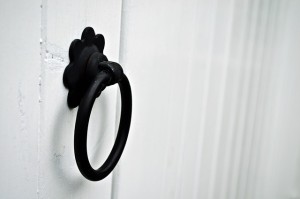I’ve had about enough, let’s call it a day/night, it’s time to quit
[Dutch phrase of the week]
[het is wel-le-tjes ge-weest] ![]()
 The adjective ‘wel’ translates as ‘well’ (as in ‘feeling well’) or ‘good’ (as in “all’s well”). You often see in colloquial Dutch that adjectives are turned into plural diminutives. Impossible by definition, but common nonetheless 🙂 The adjective that is created this way takes on the meaning of ‘quite/somewhat/rather [original adjective]’. Examples are: ‘magertjes’ (somewhat meagre), ‘povertjes’ (quite poor), ‘stilletjes’ (rather quiet). When you say it has been ‘welletjes’, you are saying that it has been quite enough (or satisfying). You can use it in different ways, see the Examples.
The adjective ‘wel’ translates as ‘well’ (as in ‘feeling well’) or ‘good’ (as in “all’s well”). You often see in colloquial Dutch that adjectives are turned into plural diminutives. Impossible by definition, but common nonetheless 🙂 The adjective that is created this way takes on the meaning of ‘quite/somewhat/rather [original adjective]’. Examples are: ‘magertjes’ (somewhat meagre), ‘povertjes’ (quite poor), ‘stilletjes’ (rather quiet). When you say it has been ‘welletjes’, you are saying that it has been quite enough (or satisfying). You can use it in different ways, see the Examples.
Another common phrase is: “Het is welletjes” or “Het is zo welletjes”. You may even hear: “Het is wel welletjes (zo)” 🙂
Examples:
– “Mensen, het is welletjes geweest, we gaan naar huis want we moeten morgen weer vroeg op.”
(“People, we’re calling it a night, we’re going home because we have to get up early again tomorrow.”)
– “Massimo, jij nog een biertje?” – “Nee bedankt gozer, het is welletjes geweest, ik moet zo nog rijden.”
(“Massimo, would you like another beer?” – “No thanks mate/dude, it’s time to stop (drinking), I still have to drive.” Note it’s common to say ‘ik moet nog rijden’, meaning you have to drive a car later that evening.)
– “Nee, ik wil niet doorverbonden worden naar een andere afdeling! Ik ben al vijf keer doorverbonden, het is welletjes geweest, ik eis dat ik nu fatsoenlijk geholpen wordt!!”
(“No, I don’t want to be put through to a different department! You have put me through 5 times now, I’ve had about enough, I demand that my issue/complaint is properly treated!” Lit.: “I have been put through five times, …, I demand that I’m helped decently!”)
– “Ja dag, het is welletjes geweest. Ik heb je nu een paar keer geholpen, het wordt nu echt tijd dat je het een keer zelf oplost!”
(“No way, enough is enough. I have helped you out a few times now, it’s about time that you solve it yourself for once.”)
Related words:
– Wel: well, good [adjective].
– Welletjes: quite enough [adjective].
– Goed: good [adjective].
– Genoeg: enough, sufficient [adverb].

 “Kloppen” is a so-called homonym: a word that has more than one meaning. The Dutch language is (in)famous for its frequent use of homonyms, check out DWOTD “
“Kloppen” is a so-called homonym: a word that has more than one meaning. The Dutch language is (in)famous for its frequent use of homonyms, check out DWOTD “